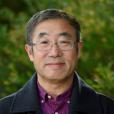
Role at ANSTO

Showing 261 - 280 of 509 results

Role at ANSTO
Australia’s best known carnivorous dinosaur Australovenator is under the microscope at ANSTO
Nuclear techniques will be crucial tools in the development of advanced materials that sustainably convert waste heat into useful forms of energy to benefit Australia.

ANSTO neutron diffraction scientist was among the experts presenting on next-generation batteries at South Korean conference.
Insights into atomic structure
In a world-first study, Australian environmental scientists have used cave stalagmites as a record of groundwater replenishment over time, that showed the current level of rainfall recharging groundwater in southwest WA is at its lowest for at least the last 800 years.
Researchers developing new materials and devices that can withstand the harsh radiation environment in space are using the unique ANSTO’s capability to simulate the effects of high-energy ion irradiation on the properties and performance of these materials and devices.
Structure of protein involved in immune response pair revealed.
ANSTO is part of collaboration conducting experiments to redefine the kilogram linking it to a fundamental constant of nature.
On the international stage amongst the leading nuclear nations of the world, Australians hold its own. This status has been earned by ANSTO’s seventy-year history of safe nuclear operations, the application of nuclear science and technology to benefit society and nuclear stewardship role in Australia.
ANSTO recently hosted a public Ask Us Anything event on nuclear medicine, sharing information on how we safely manufacture and distribute nuclear medicine across Australia each week to hundreds of hospitals and clinics.
Contribution to Handbook of Food Structure and Development showcases ANSTO expertise in food science.
ANSTO has hosted an event to launch a new Dharawal language learning resource for primary students at the nandin innovation centre.
In mid-February ANSTO attended a meeting at the International Atomic Energy Agency (IAEA) to discuss and produce recommendations for the development of a new Coordinated Research Project (CRP) on Seafood Origin and Authenticity using Nuclear and Related Technologies to progress the IAEA flagship initiative Atoms4Food.